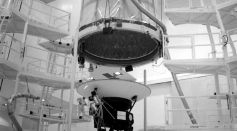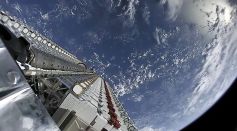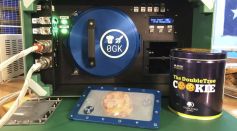TECH & INNOVATION

Astronomers Found Answers on What Lies Beyond the Solar System

10 Apps That Can Help Mothers Deal With Postpartum Depression

Car Blind Spot Problem: 8th Grader Found a Solution

Nintendo's Ring Fit Adventure is an Enjoyable Way to Get Healthy

SpaceX's Satellite Worries Astronomers

The Best Dress Watch Collection

User Beware: The Vulnerability of Smart Assistants to Laser Hacking

Soyuz Spacecrafts In Development to Transport Astronauts to the International Space Station

NASA Plans to Re-Visit Pluto Through a New Spacecraft

Boeing Tests Starliner Capsule Launch Abort System

A Giant Leap for Mankind: The Construction of the Giant Magellan Telescope is on its Way to Completion

The Mars Helicopter is Set to Launch with the Mars 2020 Rover

Voyager 2 Successfully Reaches the Interstellar Boundary

Space Oven is Ready for a Test Cook-Off
Most Popular

NASA Reveals an Astronaut Was Medically Evacuated From the ISS for the First Time After a Non-Emergency Health Scare

How the Immune System Fights Diseases: Antibodies, Vaccines & Lasting Protection

Sun Reaches Solar Maximum: What the Intensifying 11-Year Solar Cycle Means for Earth

Ancient Interbreeding Between Neanderthals and Modern Humans Revealed





